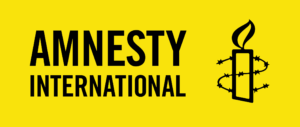On 30 May, there will be yet another hearing in the General Affairs Council in relation to Hungary in the framework of the procedure under Article 7(1) TEU that is aimed at determining whether there is a clear risk of a serious breach by Hungary of the values the EU is founded on. Since the initiation of the procedure by the European Parliament in 2018, only a couple of hearings have been conducted under this procedure, and even though the rule of law and democratic backsliding of Hungary has continued, no recommendations have been put forth by the Council.
In the meantime, the EU started to use other tools in its toolbox to address undesirable tendencies in Hungary, such as the conditionality mechanism or the milestones under the country’s Recovery and Resilience Plan that require changes in the anti-corruption framework and the judiciary system. However, the environment of these prospective changes is characterized by a dismantled system of checks and balances and a distorted media landscape, where the Government continues to have excessive regulatory powers and where legal certainty is lacking, where the non-execution of both domestic and international court judgments is a recurring issue, and where various vulnerable groups face rights violations without independent institutions being capable or willing to protect their rights. Several important areas of rule of law and human rights concerns that are not addressed by the above mechanisms and milestones are in fact covered by the Article 7(1) procedure. Therefore, it is important to raise, scrutinise and address them in the framework of this procedure.
Eight Hungarian civil society organisations — Amnesty International Hungary, Háttér Society, the Hungarian Civil Liberties Union, the Hungarian Helsinki Committee, K-Monitor, Mertek Media Monitor, the Streetlawyer Association and Transparency International Hungary — collated potential recommendations in 14 thematic areas that should be put forth to Hungary in the framework of the Article 7(1) procedure to address outstanding problems. This list is not exhaustive, but rather represents the most important steps that should be taken by the Hungarian government and its governing parliamentary majority to start restoring respect for EU values in Hungary.
The recommendations cover the following thematic areas:
- The system of checks and balances and the independence of institutions of human rights protection
- The functioning of the electoral system
- The independence of the judiciary and the rights of judges
- Law-making
- Corruption and conflicts of interest
- Privacy and data protection; freedom of information
- Media freedom
- Freedom of religion
- Freedom of association and shrinking civic space
- The rights of women
- The rights of LGBTQI persons
- The rights of persons belonging to the Roma minority
- The fundamental rights of migrants, asylum seekers and refugees
- Economic and social rights

